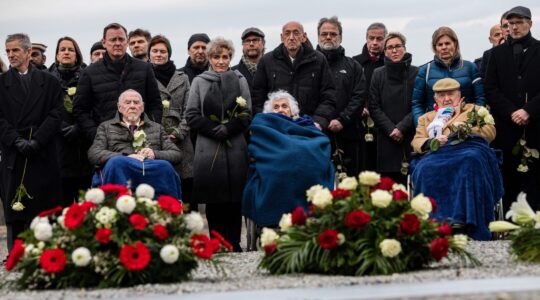BERLIN (JTA) — Riding a wave of anti-refugee sentiment, Germany’s leading right-populist party was elected to three state parliaments in regional elections throughout Germany.
The upstart party, Alternative for Germany, or AfD, is now in a position to put up candidates for the national parliament in 2017.
Exit polls on Sunday showed that the AfD won 21.5 percent of the vote in the former East German state of Saxony Anhalt, according to the German news agency dpa. It won 12.5 percent in the state of Baden-Wuerttemberg and 10 percent in Rhineland-Palatinate.
While the governing party of Chancellor Angela Merkel, the Christian Democratic Union, retained the top spot in Saxony Anhalt, it lost to the Green Party in Baden-Wuerttemberg.
The results appeared to unsettle local mainstream politicians. According to news reports, the Christian Democratic governor of Saxony Anhalt, Reiner Haseloff, who won reelection Sunday, said: “We did not want a strong AfD, we certainly did not want to have them in [the state] parliament. But we are having a nationwide political debate. We need solutions now that we can present to people who are feeling insecure.”
The AfD’s right-populist platform has opposed Merkel’s open-arm policy toward refugees from Arab countries such as Syria and Iraq, picking up on anxieties among the general population about the nearly 1 million who have sought asylum in Germany over the past year. Questions abound, from the cost and challenges of integrating the newcomers to whether their numbers include hidden terrorists.
Some Jewish leaders have expressed concern about possible anti-Semitism among refugees from Arab countries. It is not yet known how Jews voted in Sunday’s regional elections.
JTA has documented Jewish history in real-time for over a century. Keep our journalism strong by joining us in supporting independent, award-winning reporting.





